"The interview was like a taste of what Cambridge can be like, and I loved it!"
Tom is from Pocklington in East Yorkshire (North-East England), and wrote this at the end of his first year of the three-year Classics course here at Christ's College, Cambridge. At school, Tom did A-levels in Latin, History, French and Maths.
What attracted you to your course?
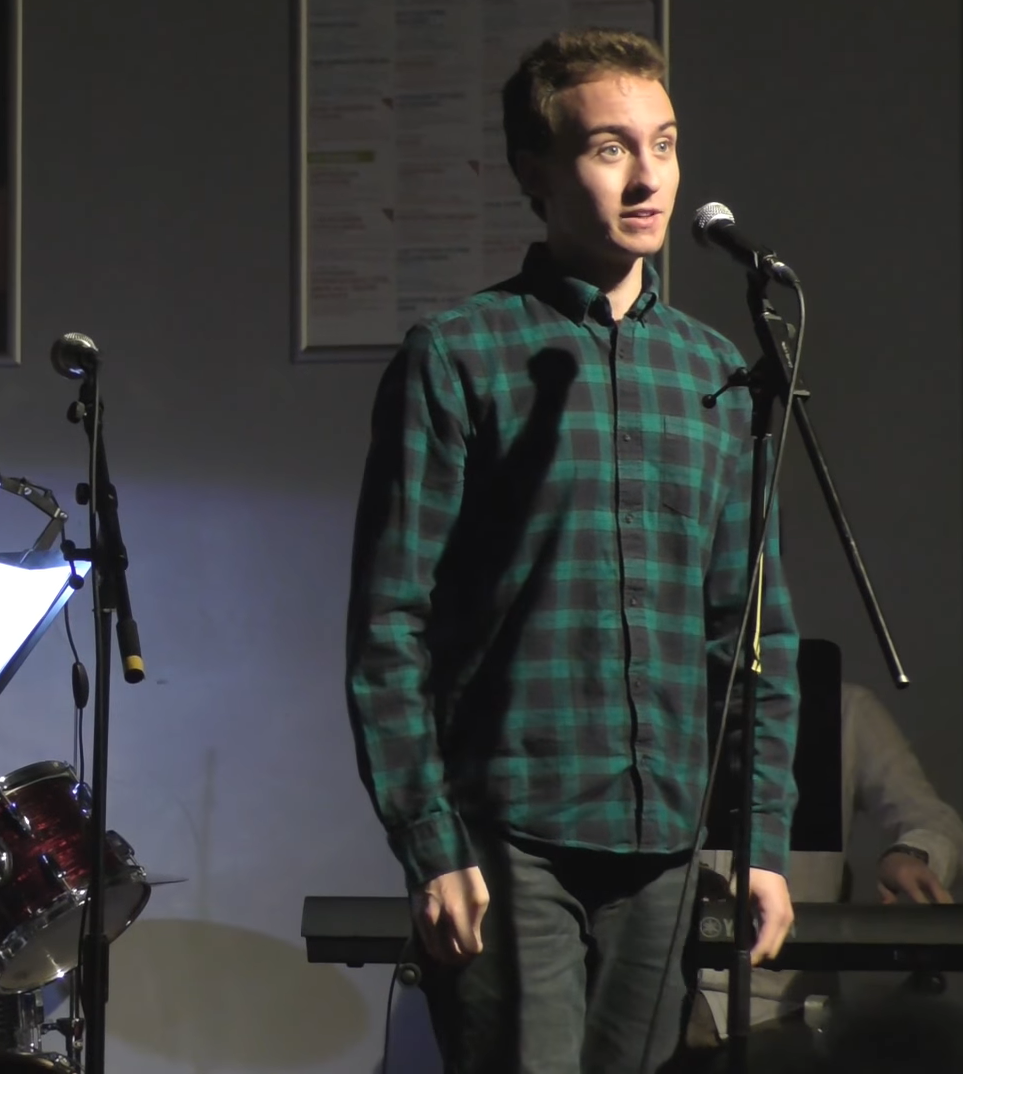
I know that some people choose to study Classics because they can’t decide on a specific subject: with Classics you don’t have to decide, because the course is so broad, including languages, literature, history, philosophy, art… But in my case, I knew from before I did GCSE's that I wanted to do Classics – I’ve been a bit of a Romans nerd since I was a kid and I loved studying Latin at school.
Cambridge (along with a few other universities) really stood out because of the unashamed insistence on learning languages really well here, although you don’t have to have done Latin or Greek at school - there's a four-year version of the course as well for those coming into Classics from scratch. Since I really love ancient literature and wanted to read it in its original languages, it was an obvious choice. Cambridge courses in all subjects are very broad at first with a wide range of options to allow you to work out what you’re really into, and that appealed to me.
What factors did you consider when choosing a College?
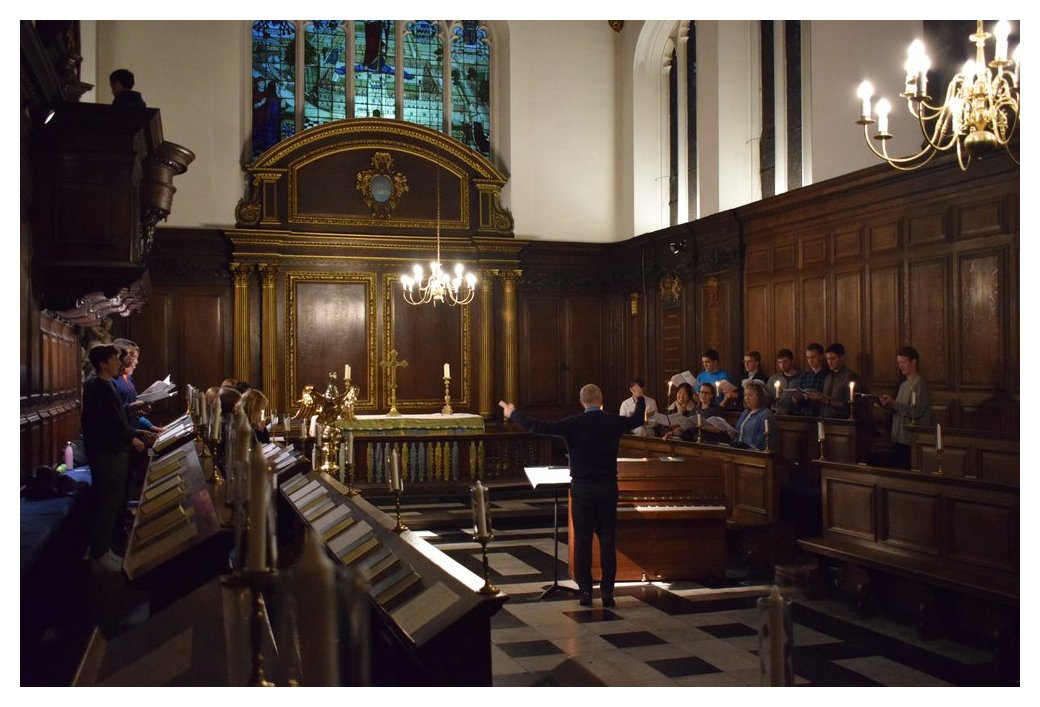
I love the historic feel of Cambridge, so I was looking at the older, central Colleges. Coming from a small school, I thought I might feel lost in a large College, so Christ’s is just right – neither large and impersonal nor small and insular. I also knew that I wanted to sing in a choir, but I didn’t want the huge time commitment of the famous choirs (plus the fact I’m nowhere near a good enough singer for the more famous choirs!): Christ’s Chapel Choir is the ideal compromise, without too much commitment but still a high quality. But what really clinched Christ's as my choice was when I came on an open day and met the Classics Director of Studies, Carrie Vout, who seemed so passionate about her role teaching undergrads and was so encouraging about the application process. After that, although I researched other Colleges, I never really was tempted by anywhere else!
Has Christ’s lived up to your expectations?
Yes!
What do you think of the collegiate system in general?
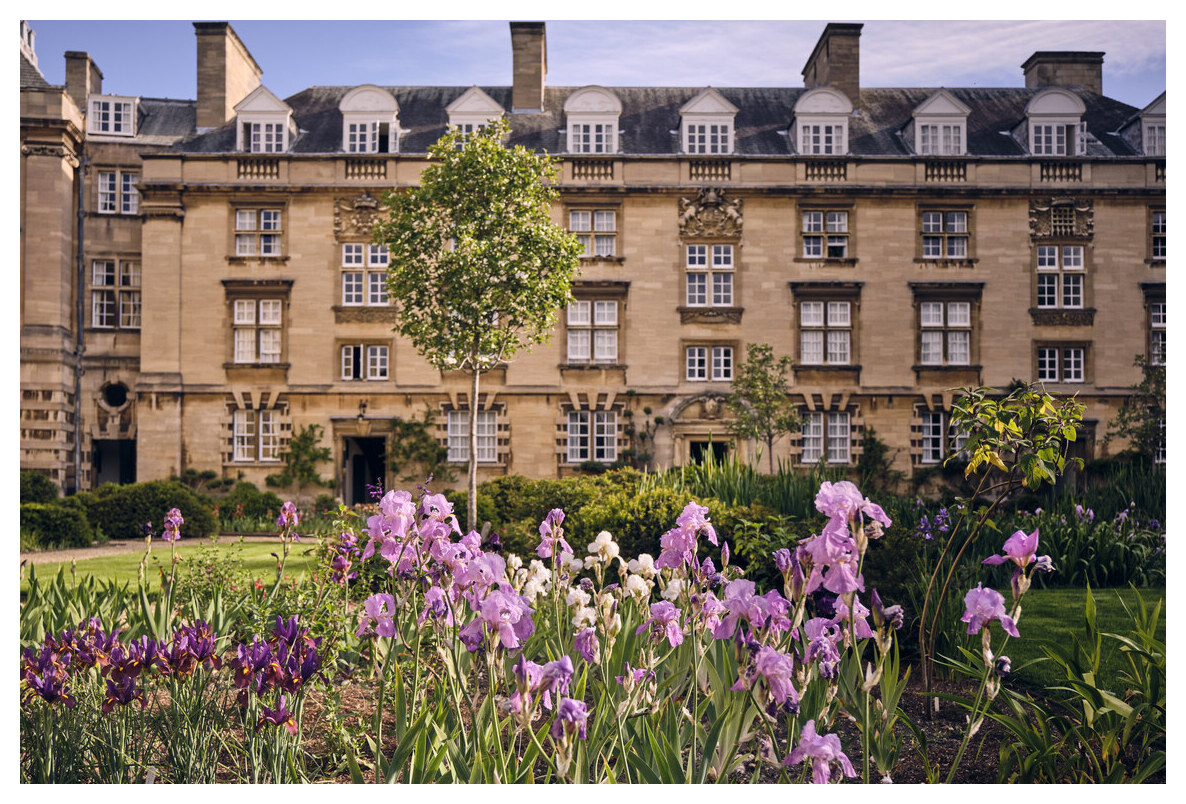
The collegiate system has had such a positive impact on my time so far. Being part of a smaller community within the mass of the university makes it so much easier to feel like you belong. It’s an automatic way of meeting people – all the events in Freshers’ Week, your neighbours, and just bumping into people around College. Being in a College also makes it so easy to take part in things. I get the impression that the wide variety of extracurriculars is a great strength of Cambridge in general, but uni-wide groups may be harder to get into, or more scary when you first arrive. Fortunately, there’s such a huge range of welcoming College activities to get involved with, at a level that is low enough that anyone can take part, but high enough for it to be enjoyable. Academically, it’s so helpful to have a Director of Studies who really gets to know their students and cares about their experience of the course. So much of what makes Cambridge great comes down to the College system.
How did you find the application process?
I actually quite enjoyed applying! It was the first time that I was reading things based on what I was interested in, rather than what a teacher told me to. Applying increased my enthusiasm for Classics – initially, I was doing all this extra reading because I knew that’s what I needed to do for my application, but then I found that I actually enjoyed reading more about Classics, and it really motivated me.
Was the interview what you expected it to be?
There was lots of information about what form the interview would take on the Christ’s website, so there were no big surprises! I’d also been to an open day at Christ’s in the September before my interview, so I had met one of the people interviewing me, which made it a lot less scary. One thing that did surprise me was how informal my interview was (although that may not be everyone’s experience!). I’d been ‘warned’ by my teachers about shaking hands properly, making good eye contact, sitting properly, what to wear etc., but in the end I had a relaxed chat sitting on a sofa, and wished I hadn’t worried about all that! I was also surprised by how much I enjoyed the experience – although I was very nervous before, I left the room with a new understanding, feeling that my ideas had been exploded to a new level: I’ve felt that same feeling again a lot since I’ve been actually studying here. The interview was like a taste of what Cambridge can be like, and I loved it!
What advice would you give students about the application?
I think it’s best not to think in terms of preparing for the interview specifically, rather of preparing for the application in general – the same things will help in the personal statement as well as the interview. My best advice is just to read things that you enjoy! If you enjoy your A level set text, read the rest of the work in English; if you don’t, think about why and read what you wish you were studying instead. If you’re interested in history, philosophy, art, literature, read something about that. If you don’t know what you’re particularly interested in (like I didn’t!) then try a bit of everything: I recommend Mary Beard’s SPQR: A History of Ancient Rome for history; the Very Short Introduction to Ancient Philosophy for philosophy; for literature Virgil’s Aeneid is truly epic, and try Longus’ Daphnis and Chloe for something very different! But it doesn’t matter exactly what you read – just have a look in your school or local library, or ask a teacher if they have any books.
More important than the reading is thinking about what you read: they won’t just let in the people who’ve got the longest list of books they’ve read! Think about what you liked and didn’t like about the book, or try to pick out a few things you learned or a few bits that stuck in your mind. One thing I wish I’d done sooner is have a notebook about what I read (not for making notes of facts – you don’t need to remember those – but for writing down thoughts).
For the Admissions Assessment, there are concrete things you can do to prepare: there are past papers online so there’s no surprises. When I applied, the assessment was just a translation, so I did lots of translation practice: with this there’s no wasted time at all, because improving your languages is preparation not just for the application, but also exams, and in the long run your degree!
"More important than the reading is thinking about what you read."
Did you find it easy to settle in?
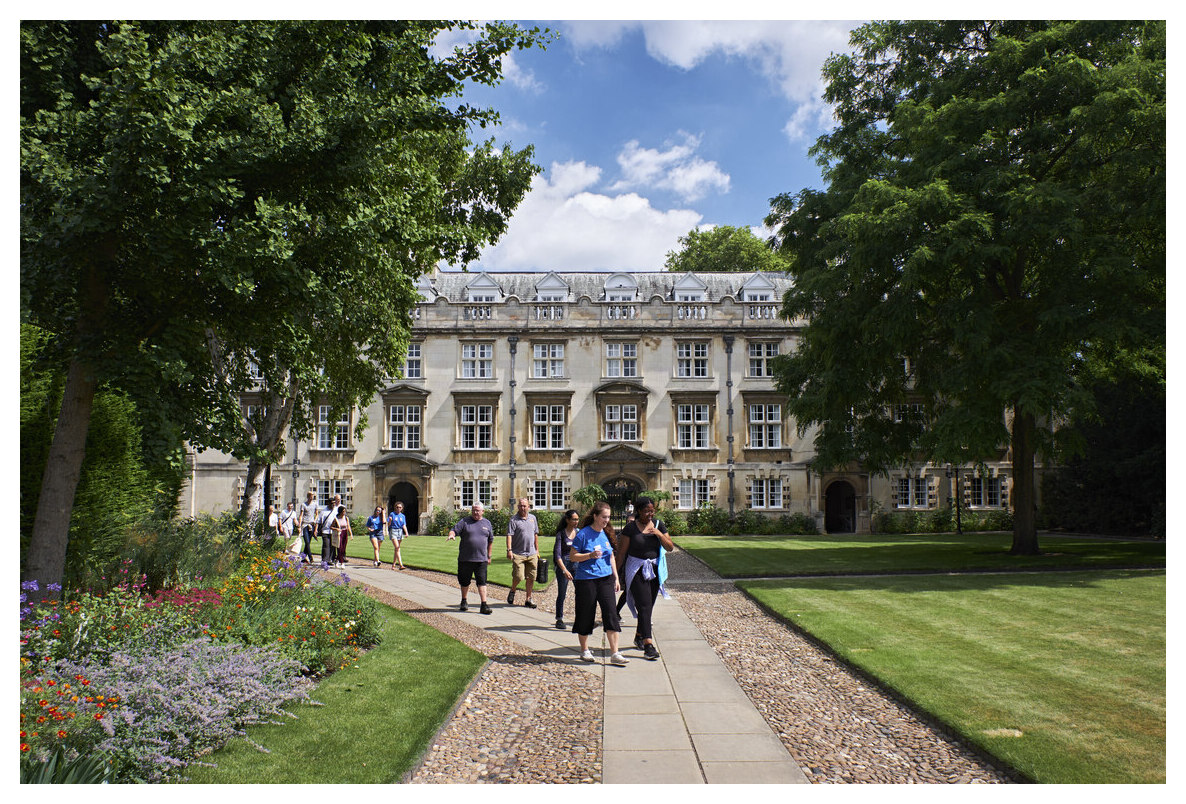
It definitely took me the first term to find my feet. Although it was very easy to meet people, making friends can be harder. It really helped that I joined the choir straight away, because that gave me a way to get to know people better which I might not have had otherwise. Also, my College Family really helped (like every first year I got two College Parents from second year, along with two or three other freshers who were therefore my siblings!). It was so reassuring to have someone to ask those questions which you know are small but you still worry about. I’ve found that I’ve enjoyed my time more and more as the year has gone on and I got to know people better – in a way, you never stop settling in, and once I realised that I didn’t need to feel settled in after just a week, I felt much more at ease!
My first week in Cambridge was very exciting because it was my first week in Cambridge, which I’d been looking forward to for so long – but “Fresher’s week” isn’t hyped up to be much here, and that’s probably for the best. Because lectures start on a Thursday (nobody understands why!!) and we only arrive on the weekend before, Fresher’s week is very short! This means it is very packed with things to do, which is good because you don’t have lots of time to sit in your room by yourself. However, I was surprised by how much academic stuff I had to do before lectures started – no work of course, but I had so many meetings with all my supervisors for the term, just like I’ve had every term since. This meant my Fresher’s week only really lasted two days! That said, I did have a great time.
I found that Fresher’s week isn’t when you make friends; it’s not even really when you get to know people. It’s more about just meeting people – I ended up with a confused mental list of name, face and subject for each person and spent the next few weeks trying to get them all matched up! Because there’s no pressure to make friends straight away, you all just tag along with whoever you happen to bump into, sit down at the next seat at dinner and start chatting, all with very little pressure. At first, I tried the classic Fresher’s experience of clubbing every night – everyone manages that feat for different lengths of time: I barely lasted the week, some of my friends made it quite a way through Michaelmas term, but everyone gives up eventually! My favourite memory is the matriculation dinner on the second night – so much free food and alcohol, a chance to meet freshers and fellows, and the first opportunity to wear my new gown!
How did you find starting lectures and supervisions?
My first supervision was with my Director of Studies, and she told us this was because everyone’s first essay is rubbish, so she wanted us not to stress about anyone else seeing it. She was right about the essay, but fairly soon I started to get the hang of it. Because we’d barely had any lectures when I got the instructions for my first essay, what was particularly scary was that it was on a topic that I genuinely knew nothing about. While I haven’t had it quite so much since then, this is a feeling that you come to embrace, because it makes it so much satisfying when at the end of the week’s work you know so much, where before you knew so little. Before I started, I had an idea that I’d be confronted with an unmanageable reading list and not know where to start – this turned out not to be true at all. Supervisors (almost) always pick out a few chapters or articles to start with, and I rarely need to go much beyond those.
What is different with your work now, compared to what you experienced at school?
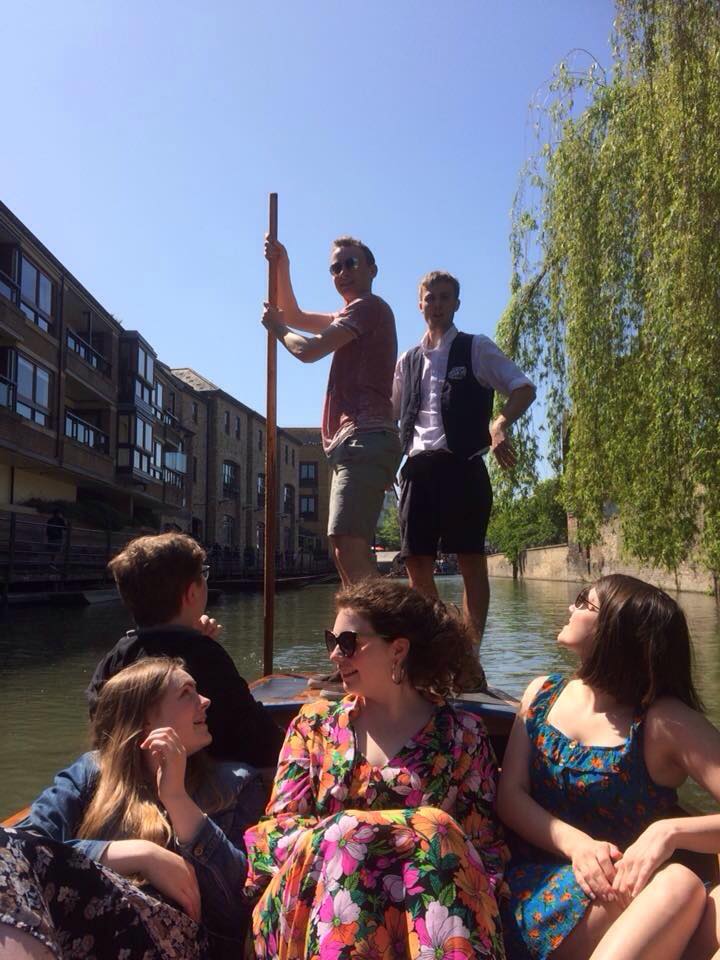
Some things that I do are similar to what I did at school – for example unseen translation exercises. I also still spend lots of time learning vocab – but whereas at school this was a set list, now it’s from lists I’ve made myself while reading. Reading is one of the biggest changes from school; the amount of text I’ve read this year is almost unbelievably more than I read in my whole time at school! I’m also still writing essays, but they’re very different to the ones at school (although more similar to my experience of writing my Extended Project Qualification). For a start, uni essays are a lot longer, and I spend much more time on them. Another of the biggest differences is that there is never a right answer – supervisors may sometimes find fault with how you wrote or argued, or suggest points that might have made it better, but they are genuinely interested in your ideas. The most frustrating change to get used to was that we don't get grades on our essays: that’s a big shock coming from a school system where we constantly measure ourselves against grade boundaries. But in a sense, it’s liberating: the point of the essay isn’t what mark you get, but what you learn, and the ideas you form about the subject.
What are the best and the hardest things about your course?
The hardest thing about Classics is learning the languages if you haven’t before – it’s hard to find time to revise grammar and vocab while doing all your other work – and the sheer volume of text reading we have to get through. The best for me (it will be different for everyone) is finding an essay topic for the week that really strikes a chord, being genuinely interested to read about it, not being able to stop trying to work out what I think about it, being surprised as I write the essay by how many ideas I actually have, and having an inspiring supervision where everything just comes together. My favourite thing about the first year (Part 1A) course is how broad it is: how many subjects there are, and how many angles to look on the ancient world, with a different supervisor and topic almost every week. It’s a real strength of how the Cambridge Classics faculty is organised, and I think it’s been reflected really well in what a varied year I’ve had.
Is the course what you expected it to be when you applied?
Yes – the faculty website has so much information about the course, and you can get a really good idea of the course by reading through it.
What has been your favourite topic from this year?
The biggest surprise for me this year is how much I’ve enjoyed the Philosophy bit of Classics (surprising because I’d never done any or really been interested before I came to Cambridge). At Christ’s, we’re very lucky to be supervised by David Sedley, the retired Professor of Ancient Philosophy, and supervisions in his ancient room up a rickety wooden staircase piled high with old books have been a highlight. In Philosophy, although we do read scholars’ views, for the most part it’s just you and the great mind from 2,500 years ago, and there’s something so fascinating and intriguing about trying to work out what on earth they meant. Often, even if I want to, I just can’t stop thinking about bits I don’t understand and trying to solve them. I’ve had a few real epiphany moments where something just clicked, and I’ve loved the challenge of trying to put it down in writing and persuade a very experienced expert that I’m not talking rubbish.
How does your teaching work?
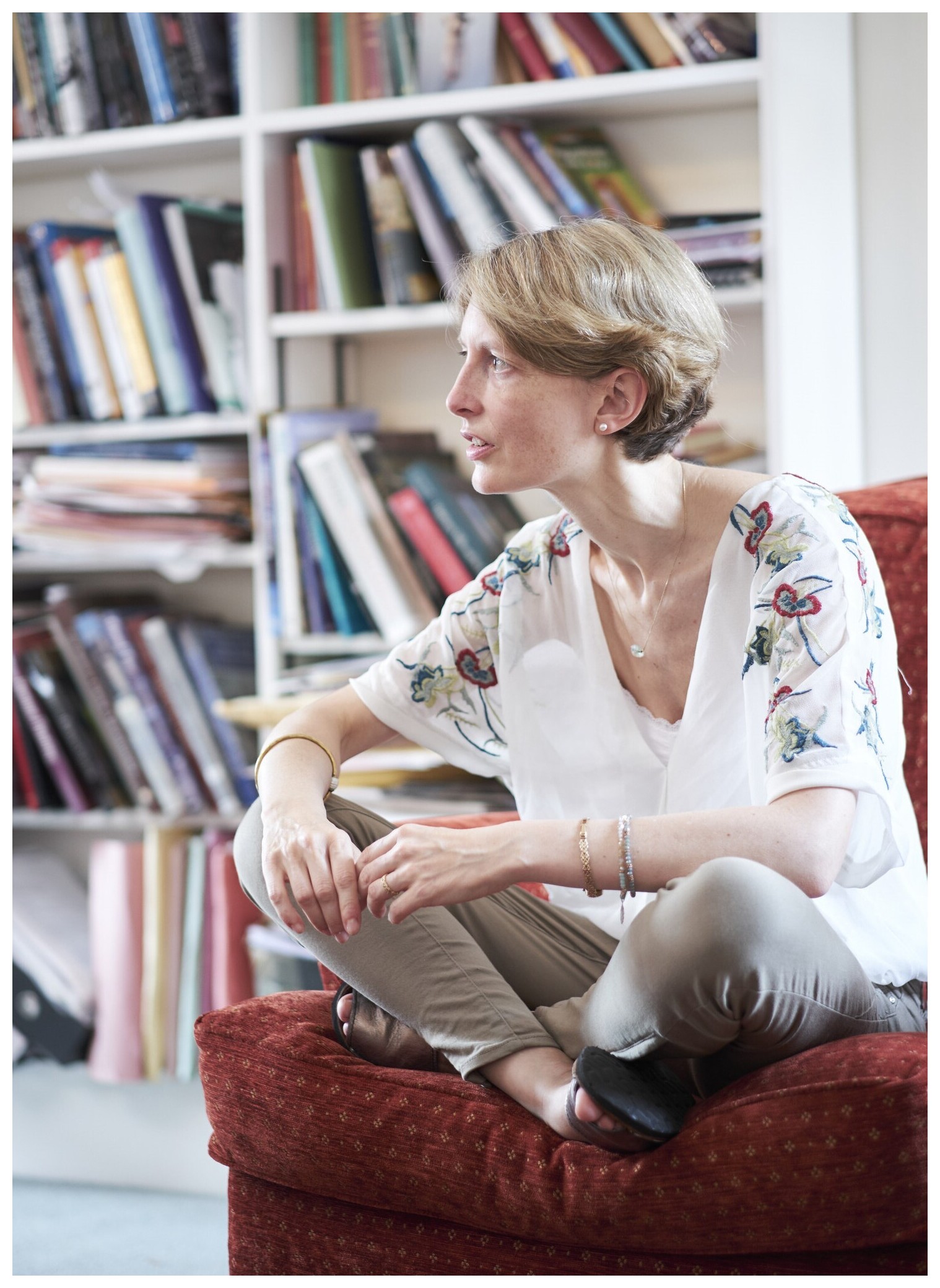 If, like me, you haven’t done A-level Greek, then every morning you have a Greek class in the faculty where you are helped to read the set texts (there’s a lot!). After that, there’s lectures – there’s two or three a day, and at first you go to them all to see what you enjoy. When you’ve chosen your options you have a couple fewer lectures to go to. I almost never missed a lecture for a course I was taking, but some people don’t find them as useful so don’t go to as many. Lectures are all in the mornings, leaving afternoons for supervisions, working or doing other stuff.
If, like me, you haven’t done A-level Greek, then every morning you have a Greek class in the faculty where you are helped to read the set texts (there’s a lot!). After that, there’s lectures – there’s two or three a day, and at first you go to them all to see what you enjoy. When you’ve chosen your options you have a couple fewer lectures to go to. I almost never missed a lecture for a course I was taking, but some people don’t find them as useful so don’t go to as many. Lectures are all in the mornings, leaving afternoons for supervisions, working or doing other stuff.
I also have three supervisions a week. One is with a PhD student at Christ’s alternating weekly between Greek and Latin translation. We get sent a passage to have a look at in our own time and then go through it and some other passages in the supervision. The second is an optional Prose Composition supervision in the faculty (that’s writing in Latin and Greek!). Finally there’s the weekly essay supervision with a different supervisor each week depending on what topic you’re doing – this is what I spend most of my afternoons working on.
How do you manage your workload?
To an extent, you can decide how heavy your workload is. You can (and I sometimes have had to) write an essay in just a few hours, or equally you can (and I’ve been tempted!) carry on reading more and never stop! This means managing your workload is as much about making work efficient and knowing when to stop as it is about fitting it in. I do quite a lot of work (basically all my translating of the set texts) in the vacations, which reduces my workload in term time a fair bit.
To help structure my time, I try to stay in the faculty and work in the afternoons until 5 or 6 pm – although inevitably I still do some work in my room on evenings and weekends. I have a routine in other ways – I’ve tried to keep my supervisions on fixed days each week, so that generally my essay is always due in on a Wednesday or Thursday. This means my work goes in week-long cycles. My weekends are fairly busy with rehearsing (see below), relaxing and socialising, then Monday and Tuesday I get through the reading for the essay, and Wednesday and Thursday I do the writing. If I’ve been particularly busy I might have some late nights getting it finished. Certainly my stress levels peak on a Wednesday or Thursday, but there really is no feeling like walking home having finished the essay just before the deadline and feeling a huge weight off my shoulders. I would definitely say that I have a good work-life balance – see below for all the other things I get up to!
"Managing your workload is as much about making work efficient and knowing when to stop as it is about fitting it in."
Where do you typically like to work?
I tried working in the Christ’s library but found it didn’t work for me. Mostly I try to stay in the Classics faculty library weekday afternoons after morning classes and lectures – it’s spacious, light and inspiring as the researchers, including some famous faces (Mary Beard!), work there too. When I’m getting fed up of there I go upstairs to the Cast Gallery and work sitting on a sofa surrounded by huge classical statues. Towards the end of the year I went to the University Library a couple of times to work. It’s so huge that it’s easy to find a corner and not see anyone for several hours, so very good to focus.
What do you do when you’re not working?
I’ve got involved in lots of extracurricular activities this year! By far the most significant in terms of time is the Chapel Choir. We sing two evensongs a week and have a rehearsal on another day, so Wednesday and Thursday evenings and Sunday afternoons are blocked out. It’s quite a big time commitment, but I absolutely love it! I met a lot of my friends in choir, and because we get free formal dinners after services I basically have two nights of timetabled socialising in my week, which is great as it’s easy to forget when you’re so busy. No matterhow stressed I am about work, when I get to choir I forget about everything outside and just focus on the music – it’s a real antidote to the manic Cambridge experience.
During my first term, I didn’t do too much else while I found my feet. But after that, I’ve got involved in lots of theatre. I’ve been in a musical at the ADC (the main student theatre in Cambridge), a musical theatre cabaret at the Corpus Playroom (the smaller student theatre) as well as shows at Christ’s, Queens’ and Caius Colleges. The theatre scene in Cambridge is incredible, with an inspiring past and vibrant present. To get some idea of the enormous number of shows that get put on, check out the calendar for a term time week on the Cambridge theatre hub! I also like going to watch plays just as much as being in them. I’ve got involved in the Christ’s College Music Society – singing in the non-auditioned, very chilled out singing group Voices and playing in the Orchestra, and as of Easter I’m on the committee as Treasurer. I’m also occasionally partial to having a drink in the Buttery (the College bar), trying out the local pubs, or just watching Netflix in a friend’s room.
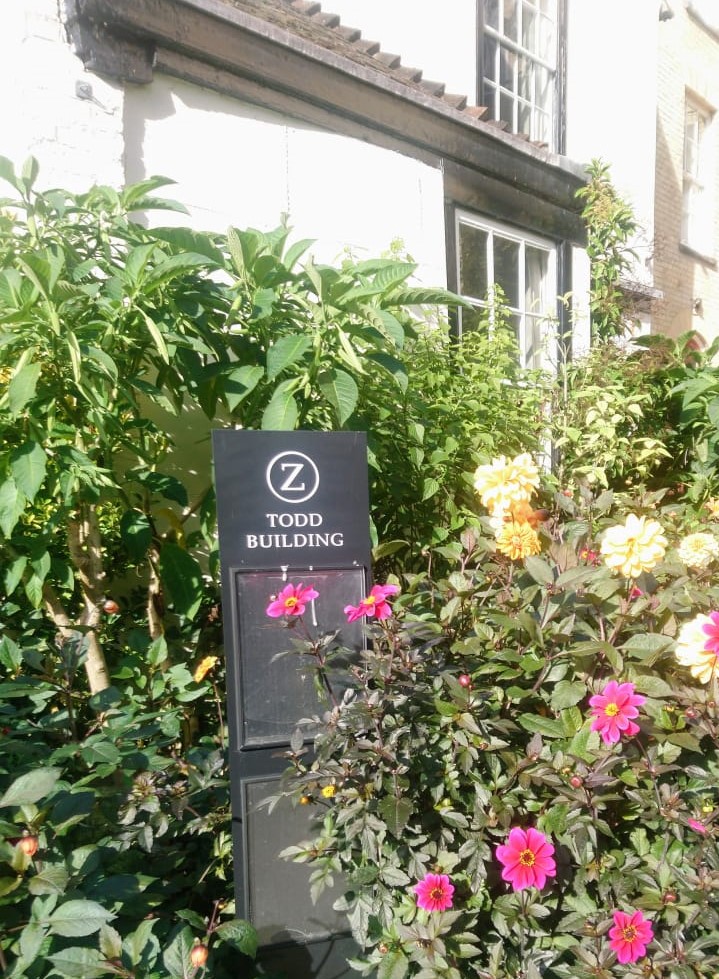
Where have you lived this year?
I lived in Z building. The old Cambridge town hall: it’s grand outside with very wide staircases and corridors, but has slightly less up-to-date rooms than in New Court. My room suited me really well though – it was quite big, with a sink in the room. I shared a bathroom, which was never a problem. My room’s window looked out onto Hobson Street rather than into College – the good news is I felt connected to the world outside College and always had things to look at; the bad news is it was noisy, especially on a Friday night (the flip side of being so close to the clubs, which is great in Fresher’s week!). I was a bit concerned before I started that most of the Freshers would be living elsewhere, but it turned out to be brilliant – we had a really nice community feel, even if our attempt at a shared fruit bowl got banned as a health hazard!
How do you spend your holidays?
As I’ve said, I like to get as much work done as I can in the holidays because there’s too much to do just in term time. So a lot of my time is spent finishing the texts from the term before and reading the texts for the term to come. I also have a job working as a waiter at a pub. It’s good to catch up with friends from school, who I still see quite often. At the beginning of the summer holiday (“long vacation”) I spent three weeks in Canada on tour with the choir. We tour every year, and because we make money from ticket sales and stay with hosts rather than in hotels it’s a very cheap way to see the world!
What are you most looking forward to next year?
Next year I’m going to be living in one of the College-owned houses on Jesus Lane, really near College. I’m so excited to have a different, more “normal” student experience of living in a house with my friends. One of the most difficult things last year was that sometimes I wouldn’t see my friends for a couple of days because we lived in different parts of College and were so busy, so I can’t wait to see them all the time (although I’m going to get so distracted!). I’m looking forward to experiencing a year in Cambridge knowing from experience what I enjoy and how to make the most of it.
"I’m so excited to have a different, more “normal” student experience of living in a house with my friends."
Do you know which papers you’ll be taking next year?
I’m finding it hard to choose my papers, because so many of the options look really great! In the second year of Classics (Part 1B), we carry on reading lots of literature, but this year get more of a choice. Since I enjoy drama, I loved reading Greek tragedy last year and am looking forward to continuing next year with the “Athens on Stage” option. Beyond literature, I’ve chosen to continue Philosophy and History. In History, I’m going to study the Roman Emperor option; having lectures in first year from as-seen-on-TV Mary Beard was a highlight of last year, and rumour has it that we may be supervised by her next term, which is a really exciting prospect!
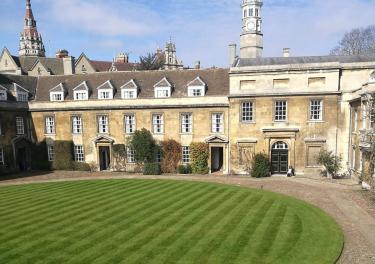
Looking back over the year, what do you feel you have got out of it?
I’ve learnt to be confident: that my opinions matter, that I can express them in writing and by talking. I’ve got to the point where sometimes I can really read, not just translate, a text written over 2000 years ago. I’ve met some of the world’s leading academics in Classics, I’ve learnt so much from them and very occasionally made them think too. I’ve had the most wonderful conversations putting the world to rights over dinner, when I’ve learnt how to disagree without any hard feelings, to understand where other points of view come from. I’ve changed views and had mine changed. I’ve had moments that have genuinely stopped me in my tracks, made me stop doing and simply be: walking past the TV cameras the day Stephen Hawking died and being conscious of all the knowledge that this city makes; seeing the sun set over First Court or the pristine snow in front of King’s Chapel and thinking that I live in the most beautiful city in the world; seeing people in gowns cycling down the street in the evening and feeling so lucky that people like me can have a part in this moment of Cambridge’s long history and future. I’ve made memories and friends for life, and I can’t wait for more.
September 2018
Please be aware if you're considering an application that our student writers describe their experiences. Although the majority of the information stays the same, some details may change from year to year. Do read the student profiles in combination with our undergraduate admissions pages for full information.
Back to Student profiles page / Classics at Christ's / Next: Sebastian's profile
